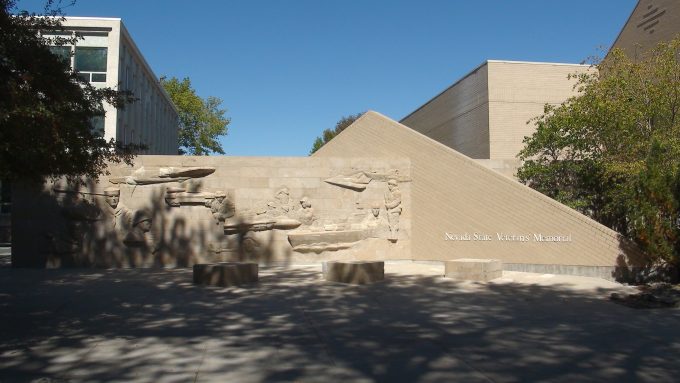
Monday, 27 August 2018
And again:
“I will put My trust in Him.”
And again:
“Here am I and the children whom God has given Me.” Hebrews 2:13
The two clauses of this verse are probably both taken from Isaiah 8. The first one is similar to words spoken in 2 Samuel 22:3 and Isaiah 12:2, but as they are both cited in Isaiah 8, it is that passage which is probably on the author’s mind. He has simply quoted Isaiah 8:17 & 18 –
“And I will wait on the Lord,
Who hides His face from the house of Jacob;
And I will hope in Him.
18 Here am I and the children whom the Lord has given me!
We are for signs and wonders in Israel
From the Lord of hosts,
Who dwells in Mount Zion.”
As can be seen, the surrounding words are messianic in nature, looking forward to His coming. The author clearly understood this, seeing Jesus as their fulfillment and applying the words to Him and to what is realized in His New Covenant. They are both to be taken as Jesus speaking about God, just as in the previous verse. Jesus has put His trust “in Him” meaning the Lord. As was seen in verse 1:13, this in no way diminishes the deity of Christ, it simply refers to Jesus’ who is both God and man. The citation in verse 1:13 was from Psalm 110 where the LORD (meaning Yehovah) was speaking to Adonai (“my Lord,” also meaning Yehovah). One was referring to God the Father and the other was referring to God the Son.
In both clauses of this verse from Hebrews, the words “And again” are used. Thus both are building on the same concept previously laid out, that of brotherhood. Understanding this, he first says, “I will put My trust in Him.” Jesus has put His trust in God; those who follow Jesus have put their trust in God. In this, the brotherhood is established because all are trusting the same heavenly Father. Christ trusted Him in the completion of His work; we trust in Him through the completion of Christ’s work. And so, the fraternal relationship is strengthened because the object of the trust is the same in both.
One can think of two sons stuck in a pit. The first is brought out directly by the father. In the case of the second, the father says, “I am going to get you out of this,” but the second son is in a deeper part of the pit, and so he uses his first son in the process of getting the second son out. Without the work of the first son, the second would never be retrieved, but both are saved. Both sons have trusted their father, and both have a common bond which unites them more firmly than ever before. This is the idea of the first clause.
The author then continues on with, “Here am I and the children whom God has given Me.” The original intent of the words in Isaiah is that Isaiah and his sons had become as signs and wonders to Israel. Isaiah means, “Salvation of the Lord.” He is typical of Christ. His sons are Maher-shalal-hash-baz which means, “Speed the spoil, hastens the prey,” and Shear-jashub which means, “A remnant shall return.” The Lord would judge Israel by hiding His face from them (Isiah 8:17), but a portion of them would be saved. Those whom He calls “brethren” are those who have trusted God’s work in Christ. This is why Isaiah and his sons are used. Their names were equivalent to what God would do to Israel. Thus, the three of them are as “signs and wonders” to the people.
Jesus is God’s Son. The “brethren” are children in relation to God because He has adopted them in Christ. However, they are also “the children whom God has given Me.” They are 1) sons of God; 2) sons of Christ who is the Lord, and 3) they are uniquely Christ’s brethren as well. This is why Christ is “not ashamed to call them brethren” (verse 2:11).
The key to understanding the entire passage as outlined so far is that Christ is both the Son of God, and that He is God. It is the deity of Christ that is on display here. Thus, He is “greater than the angels.” The author will continue to develop this in the verses ahead.
As a final thought, please continue to consider the context. The book is specifically written to the Hebrews. It is they who are being spoken to. Though the Gentiles are also sons of God through faith in Christ, it is important to continue to remember who is ultimately addressed in this book.
Life application: A cursory reading of these verses is enough to give a person the general idea of son-ship, brotherhood, and etc. However, a detailed study of them is really necessary to see the majesty of what God has done for us through the work of Christ Jesus. Be patient, contemplate carefully, and ponder deeply the words of God. In this, you will always be blessed with a fuller understanding of the intent behind the surface words which may at first seem difficult to grasp.
Heavenly Father, we were in a pit of our own making, and yet You came to get us out of it. Jesus voluntarily came to go into the pit and rescue us from it, all the while He trusted in You to deliver Him so that He could then deliver us. Through Him, we are restored to You as sons, and He has called us His brothers. What an amazing story is revealed in Your word. We thank You, O God, for what You have done for us in, and through, Christ our Lord! Amen.
